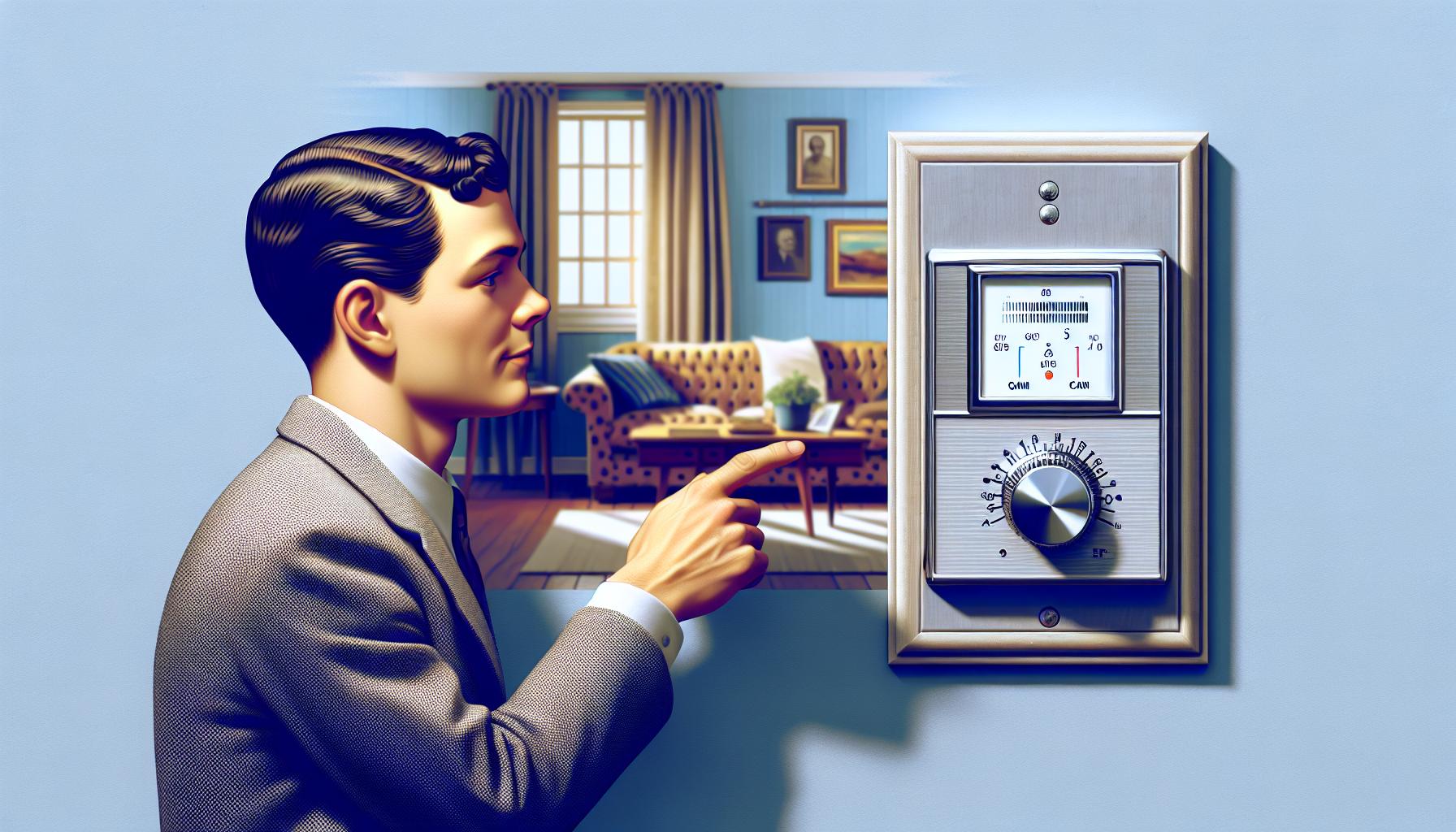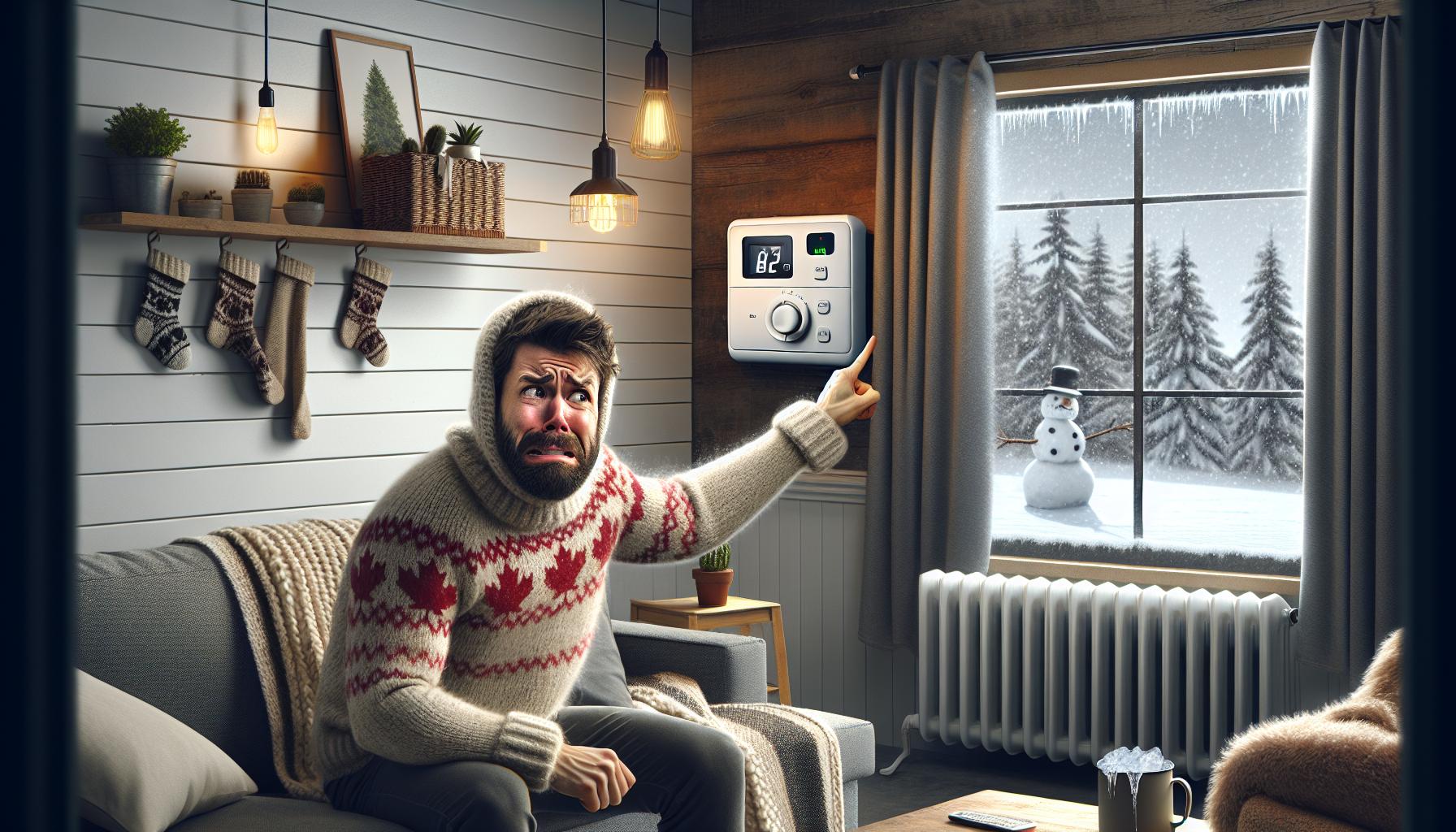Nothing’s more frustrating than a heater that keeps turning off just when you need it most. As temperatures drop, a reliable heating system becomes essential for maintaining comfort and safety in your home. But what do you do when your heater seems to have a mind of its own, shutting down unexpectedly?
In this text, you’ll discover the common reasons why your heater might be acting up and how to address these issues effectively. From thermostat problems to clogged filters, we’ll cover the key culprits behind this annoying occurrence. Understanding these factors not only helps you troubleshoot the issue but also ensures your heating system runs efficiently, saving you time and money in the long run.
By the end of this read, you’ll have a clear grasp of the potential problems and practical solutions, empowering you to keep your home warm and cosy throughout the colder months.
Common Reasons Why Heaters Turn Off
Heaters can suddenly turn off for various reasons, causing discomfort and inconvenience. Understanding these common issues can help you troubleshoot and resolve the problem efficiently.
Thermostat Issues
Thermostat problems frequently cause heaters to shut off. Incorrect settings, battery issues, poor location, or malfunctioning parts can lead to premature shutdowns. Ensure your thermostat is set correctly and check for any technical issues.
Overheating
Overheating is a common cause for heaters to turn off. Built-in safety features trigger shutdowns to prevent damage or fire risks. Check for dust accumulation or blocked vents, which can cause overheating.
Blocked Airflow
Blocked airflow can cause heaters to turn off unexpectedly. Ensure that vents and filters are clear of obstructions. Regular cleaning and maintenance can prevent this issue and keep your heater running smoothly.
Faulty Sensors
Faulty sensors can lead to heater shutdowns. Sensors monitor various aspects like temperature and airflow. If they malfunction, they may incorrectly signal the heater to turn off. Inspect and replace any faulty sensors to ensure proper functionality.
Troubleshooting Heater Problems

If your heater keeps turning off, several potential issues could be at play. Troubleshooting these problems can help you identify and fix the issue, ensuring your heater operates efficiently.
Checking The Thermostat
Ensure the thermostat is set correctly and not in a warm spot. Verify it’s set to “HEAT” and “AUTO,” not “ON.” Check for loose wiring, as a faulty thermostat can cause premature shutdowns.
Inspecting For Overheating
Overheating can cause the heater to shut off as a safety measure. Inspect the heat exchanger for dust buildup or blockages, which could lead to overheating. Regular maintenance can prevent these issues.
Ensuring Adequate Airflow
Blocked airflow can cause the heater to turn off. Check vents and filters for dust or obstructions. Clear any blockages to ensure proper airflow and prevent the system from shutting down.
Testing Sensors And Controls
Faulty sensors or controls can cause the heater to turn off unexpectedly. Test these components to ensure they’re functioning correctly. Replace any malfunctioning parts to maintain efficient operation.
When To Call A Professional
In some cases, resolving heating issues on your own isn’t possible. Recognising when to seek expert help can save time and prevent further damage.
Identifying Complex Issues
If your heater keeps turning off even though addressing common causes like dirty filters and blocked vents, you may need a professional. Complex electrical or mechanical problems can require specialised knowledge and tools.
Safety Concerns
A heater that short cycles could indicate dangerous issues, such as gas leaks or faulty wiring. Professionals have the expertise to safely diagnose and fix these problems, ensuring your home remains safe.
Long-term Maintenance
Regular professional maintenance extends your heater’s lifespan and efficiency. Annual check-ups by a qualified technician can identify and address potential issues before they become major problems, saving you money and hassle in the long run.
Preventative Measures
Taking proactive steps ensures your heater functions efficiently and reduces the likelihood of unexpected shutdowns. Implementing regular maintenance practices and addressing key components can keep your system running smoothly.
Regular Maintenance
Schedule annual check-ups with a qualified technician. Regular inspections can catch potential issues early, ensuring your heater operates efficiently. Technicians will clean, lubricate, and test all components.
Filter Replacement
Replace your air filter every 1-2 months. A clean filter maintains optimal airflow, preventing overheating and system shutdowns. Check the manufacturer’s recommendations for specific filter types and replacement schedules.
Proper Installation
Ensure your heater is installed correctly. Improper installation can lead to frequent shutdowns and inefficiency. Hire certified professionals to install your heater, following all manufacturer guidelines and local regulations.
Conclusion
A heater that keeps turning off can be a significant inconvenience, especially during the colder months. By understanding the common causes and solutions, you can troubleshoot and resolve many issues on your own. Regular maintenance and proper installation are crucial for ensuring your heater runs efficiently and safely.
Don’t hesitate to call a professional for complex problems or routine check-ups. Annual maintenance by a qualified technician can prevent future issues and extend the lifespan of your heating system. Stay proactive and vigilant to keep your home warm and cosy all winter long.
